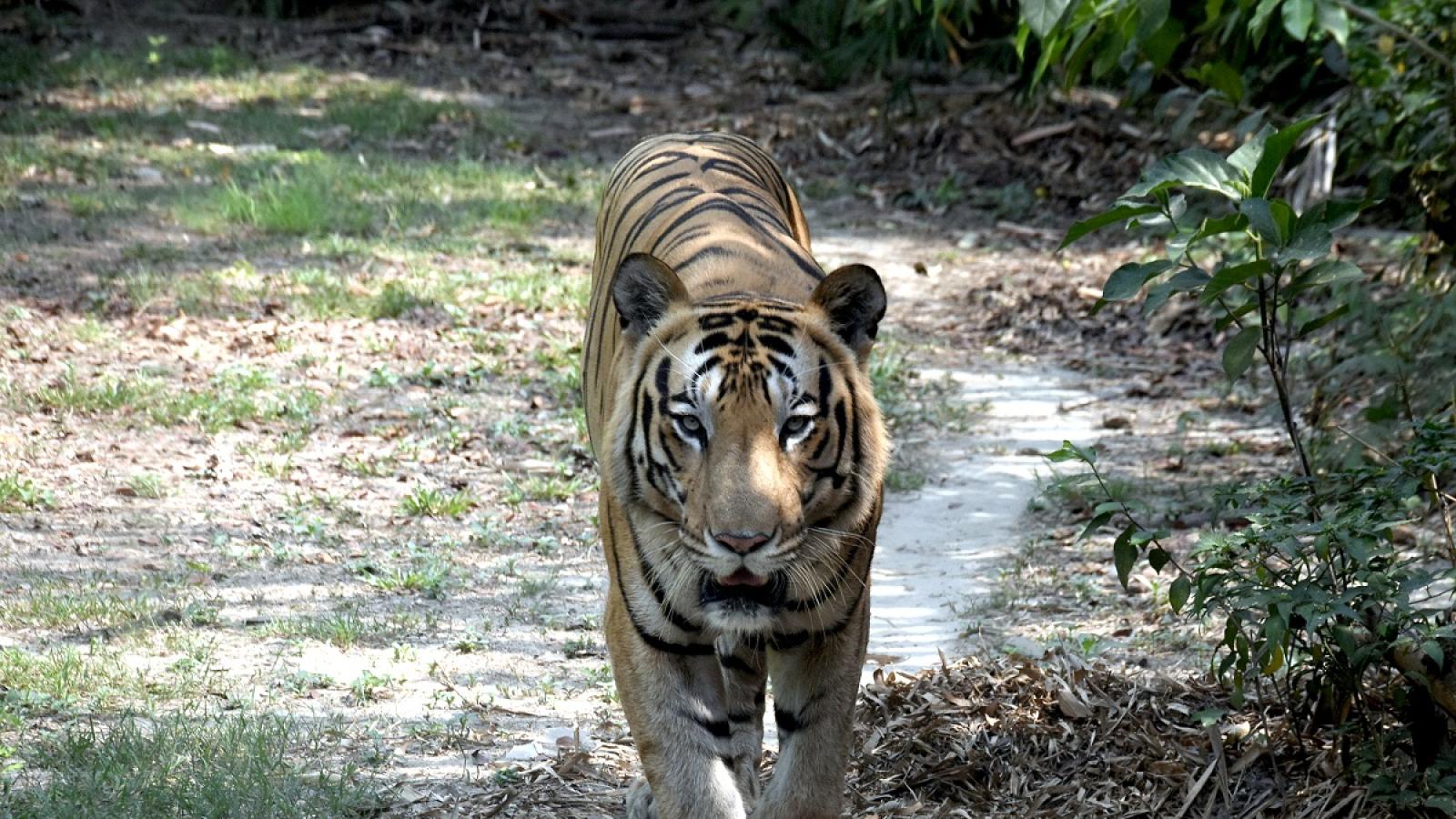A series of tiger attacks in Karnataka’s forest zones has prompted an immediate shutdown of safari operations in the Bandipur and Nagarahole Tiger Reserves, following directives issued by Forest Minister Eshwar Khandre. The precautionary order comes amid rising concern for visitor safety after repeated incidents involving big cats in the forest fringes. The developments have refuelled the debate over human–wildlife conflict and increased scrutiny of eco-tourism practices in densely biodiverse landscapes.
Some experts believe the temporary safari shutdown could become an opportunity to reassess long-term tourism policies within protected reserves. They argue that the pause allows the state to audit vehicular caps, guide training, waste disposal, and route planning. Several conservationists have long stressed that tourism must be approached with ecological sensitivity rather than aggressive promotion. By analysing visitor patterns during the closure, the Forest Department may derive valuable insights into stress points within the landscape, enabling future safari operations to prioritise wildlife comfort over tourist expectations. Such recalibrations could create a more sustainable eco-tourism model.
Environmental sociologists note that tiger attacks often spark strong emotional reactions, which can influence policymaking. Some communities demand aggressive measures such as capturing or relocating tigers, while conservationists advocate patience and habitat protection. The current decision to temporarily halt safaris attempts to bridge these opposing narratives, signalling that authorities are attentive to community anxieties while protecting ecological integrity. This balancing act highlights the need for educational outreach that helps the public understand tiger behaviour. Without such awareness, human fear may escalate, pressuring governments to adopt measures that undermine long-term biodiversity goals.
In addition, wildlife health has become a point of discussion, especially with climate change altering patterns of prey availability. Shifts in rainfall, temperature, and water scarcity can affect herbivore populations, indirectly influencing predator movement. Experts warn that tiger dispersal during lean seasons is not uncommon, and sudden encounters may be symptomatic of broader ecological strain. Continuous monitoring is therefore required not only to track individual tigers but also to assess ecosystem health. This holistic approach, scientists say, must guide future responses to conflict incidents rather than relying on reactive animal-centric interventions.
The shutdown also invites reflection on the cultural significance of tigers in Karnataka. Revered across South India as symbols of power and protection, tigers occupy an important place in local folklore and identity. Communities living near reserve boundaries often perceive their presence with both reverence and apprehension. By pausing tourism activity, the state acknowledges this emotional dimension while reaffirming the tiger’s intrinsic value beyond economic and recreational aspects. As Karnataka navigates this sensitive moment, the hope is that communities and authorities can strengthen their shared commitment to coexistence — honoring a species that remains central to India’s natural heritage.
The Minister’s directive emphasises that human activity within forest ranges must be curtailed until predator movement stabilises. Forest department units have begun monitoring safaris, visitor centres, and internal transport routes to ensure compliance. While the closure has inconvenienced tourists at the peak of the travel season, officials argue that safeguarding lives — both animal and human — is the overarching priority.
Experts note that the tiger attacks may be linked to shifting territorial patterns driven by prey migration or climatic fluctuations. Increased agricultural expansion near reserve boundaries has also been cited as a major trigger for interactions. Villagers living along these border regions have expressed fear, urging the government to expedite compensation processes and reinforce patrol systems. The temporary safari halt is seen as a stabilising measure to give authorities time to assess field conditions more scientifically.
MAJOR SAFETY SHIELD
Forest Minister Khandre’s decision has drawn both praise and criticism. Conservationists have welcomed the move, stating that tourism pressures often disturb wildlife, especially during seasonal transitions. They argue that tigers remain highly sensitive to sound and vehicular intrusion, which risks pushing them further into buffer zones where human settlements exist. A temporary tourism ban, they say, is a rational corrective measure that prioritises ecological wellbeing over revenue.
Tour operators and resort owners, however, fear a financial setback. The reserves attract both domestic and international visitors, producing considerable income for local communities. Many depend on jeep safaris, lodges, and nature camps for employment. With the closure, several bookings have been cancelled, impacting revenue flow for the coming weeks. Operators have requested a minimum-duration timeline to plan financially, but authorities insist that decisions will depend solely on ground reports.
Forest officials are deploying specialised tracking units to observe tiger movement inside core zones. These teams rely on camera traps, patrolling logs, and pugmark identification to map predator behaviour. The aim is to determine whether individual tigers involved in attacks have shifted territory or displayed signs of conflict-driven aggression. If necessary, intervention measures — including tranquilisation and relocation — may be considered. Analysts say such decisions must be backed by scientific evaluation to avoid unnecessary displacement.
The closure also indicates a shift in strategy toward conflict mitigation rather than conflict retaliation. Authorities reiterated that killing problem animals is not a preferred option unless human safety faces immediate threat. This stance reflects India’s conservation philosophy, which prioritises coexistence with wild species that share critical ecosystems. The minister declared that saving tiger populations remains a national responsibility, given their ecological and cultural significance.

Local villagers, meanwhile, have urged faster compensation disbursal for victims of recent attacks. They argue that bureaucratic delays worsen suffering and increase hostility toward wildlife. Forest officials claim compensation mechanisms are in place but admit paperwork remains slow. Community leaders have recommended decentralised relief funds to ensure timely assistance. The government is expected to review procedural hurdles in upcoming meetings.
Conservation groups are also calling for strict enforcement of buffer-zone regulations. Encroachment, livestock grazing, and unregulated vehicular movement remain long-standing problems. Experts say that despite multiple advisories, illegal entry points continue to appear near highways and farmlands. Addressing these gaps requires inter-departmental coordination between forest, police, and revenue officials — a challenge that has historically hampered response efforts.
BIG CONSERVATION FOCUS
The tiger attacks have brought renewed attention to habitat fragmentation. Expansion of agriculture, energy projects, and roadways has squeezed wildlife into narrower corridors, intensifying competition among predators. This leads to unpredictable patterns of dispersal, with young tigers venturing beyond traditional boundaries. Scientists warn that unless natural corridors are secured, human–wildlife interactions will increase in frequency and severity.
Bandipur and Nagarahole, part of the Nilgiri Biosphere, host one of the world’s largest tiger populations. Their landscapes form a critical ecological belt stretching across Karnataka, Tamil Nadu, and Kerala. Though considered conservation success stories, the reserves face continuous pressure from tourism, traffic on adjoining highways, and mushrooming tourism infrastructure. Stakeholders insist that balancing revenue generation with ecological protection remains a difficult responsibility.
Wildlife experts believe the recent incidents highlight the need for deeper community engagement. Villagers are primary responders during emergencies, yet they often lack awareness of safe behavioural practices. Training programmes focused on early-warning systems, mobile alert networks, and livestock safety are now being prioritised. Building trust with local residents could reduce hostility and improve reporting accuracy, which is essential for timely intervention.
There are also calls to improve scientific documentation. Though Karnataka leads in tiger conservation, researchers say there is insufficient long-term data on predator behaviour following conflict events. Better mapping of kill patterns, seasonal dispersal, and pressure zones could allow predictive modelling to prevent accidents. Universities and research institutes have expressed willingness to collaborate, but funding remains uncertain.
With safaris suspended, conservationists hope the reserves can temporarily recover from tourist-driven noise. They argue that a period of undisturbed stability could allow tiger families to settle, especially during mating or denning seasons. Reduced vehicular pressure may also support prey movement, reinforcing predator-prey balance. Authorities say reopening will depend on improved safety, but emphasise that such decisions must respect both ecological rhythms and community needs.
Several activists are urging the government to examine long-term alternatives to traditional tourism. Controlled foot trails, interpretive centres, and virtual safari platforms have been suggested to reduce vehicle dependence. These initiatives could preserve visitor interest while ensuring that wildlife remains undisturbed in core areas. Models used in African parks are being studied for possible adaptation in the Indian context.

Local political representatives, meanwhile, have demanded accountability. They argue that repeated attacks signify systemic gaps that require structural reform rather than temporary bans. Proposals have been made to increase staffing, modernise communication gear, and improve vet-unit readiness. Critics believe that without administrative overhaul, Karnataka will find itself responding reactively rather than managing conflict proactively.
The tourism sector is pushing for the government to consult resort operators before issuing long closures. They highlight that early notifications can reduce economic shock and enable coordinated visitor management. Many suggest that limited safari routes could remain open under heightened safety measures, but officials maintain that tiger unpredictability makes partial relaxations risky. Authorities must now negotiate a delicate balance between ecology and economy.
As the situation unfolds, the broader debate centres on coexistence. Karnataka’s forests are not merely wilderness zones but shared spaces shaped by centuries of human presence. Ensuring safety while retaining ecological vibrancy requires collaborative governance that respects both community livelihood and forest autonomy. Though the reserve shutdown has disrupted economic activity, many agree it sends a strong message: protection takes precedence.
The coming weeks will be critical in determining how long the closures last. Forest staff are monitoring field reports daily, and further instructions may follow based on tiger sightings and behavioural assessments. Meanwhile, communities near the reserves are being counselled to follow safety instructions and avoid deep-forest movement. If conditions stabilise, phased reopening could begin — but authorities refuse to offer guarantees.
Ultimately, the closure underscores the fragility of coexistence. With tiger numbers steadily rising due to conservation success, territories are expanding — sometimes intersecting with human spaces. Strengthened ecological corridors, scientific vigilance, and public cooperation will determine whether Karnataka can sustain its wildlife heritage without compromising human safety.
If successful, the response to these attacks may offer a template for conflict-resolution protocols across India’s tiger reserves. For now, Karnataka waits — hopeful that temporary silence inside Bandipur and Nagarahole will help restore balance and pave the path for safer coexistence.
Follow: Karnataka Government
Also read: Home | Channel 6 Network – Latest News, Breaking Updates: Politics, Business, Tech & More

